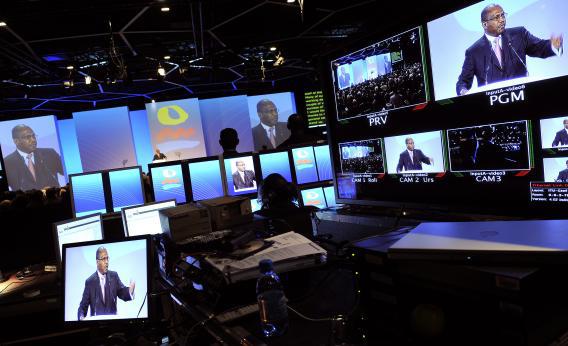Xenophobes and technocrats have found something they can agree on: The United Nations shouldn’t be in charge of the Internet.
U.S. lawmakers from both parties have been beating their chests over rumblings that a heretofore uncontroversial UN agency plans to seize control over cyberspace. This morning, every single member of the House Energy and Commerce Committee agreed that it should be “the consistent and unequivocal policy of the United States to promote a global Internet free from government control.” Taking a page from the UN’s playbook, the committee unanimously approved a nonbinding resolution to that effect. It will now head to the full House for a vote.
“The Russians and Chinese are working quietly behind the scenes… to exert control over Web content and infrastructure,” said Rep. Mary Bono Mack, the California Republican who introduced the resolution. “We can’t let that happen.”
She’s right that other countries would love to gain more influence over the Internet. Its infrastructure today is governed by ad hoc technocratic groups such as ICANN, the Internet Engineering Task Force, and the World Wide Web foundation, which have all been funded to various degrees by the U.S. government. If countries like Russia and China had their way, the Internet would almost certainly be less open and transparent.
Fortunately, it seems unlikely that the ITU’s 193 member states will agree to any radical changes to the web’s governance at the upcoming conference. But the debate is a reminder that, in an era of receding U.S. hegemony, it is no sure thing that the Internet will continue to be organized and managed according to American values. That point was driven home in 2009, when the Department of Commerce gave up direct control over ICANN.
So if the United States doesn’t control the Internet in the future, who will? Calls to keep the Internet free sound good, but they tend to overlook the fact that the Web is already not entirely anarchic. Between bodies such as ICANN, IETF, and the WC3, it’s more of a laissez-faire technocracy.
That system has worked gloriously so far, helping the Internet grow in ways no bureaucrat could have imagined, let alone planned. But as appealing as it may be to you and me and Vinton Cerf*, it is not a system of government that has proven particularly tenable through the ages. Countries tend to be either authoritarian and repressive or democratic and populist. As the Internet becomes increasingly central to people’s lives around the world, state governments will not be content to entrust its governance to a bunch of benign wonks. This round may go to the engineers, but the political struggle has just begun.
*Correction: An earlier version of this post mistakenly referred to Google’s Vinton Cerf as “Vincent” Cerf.
